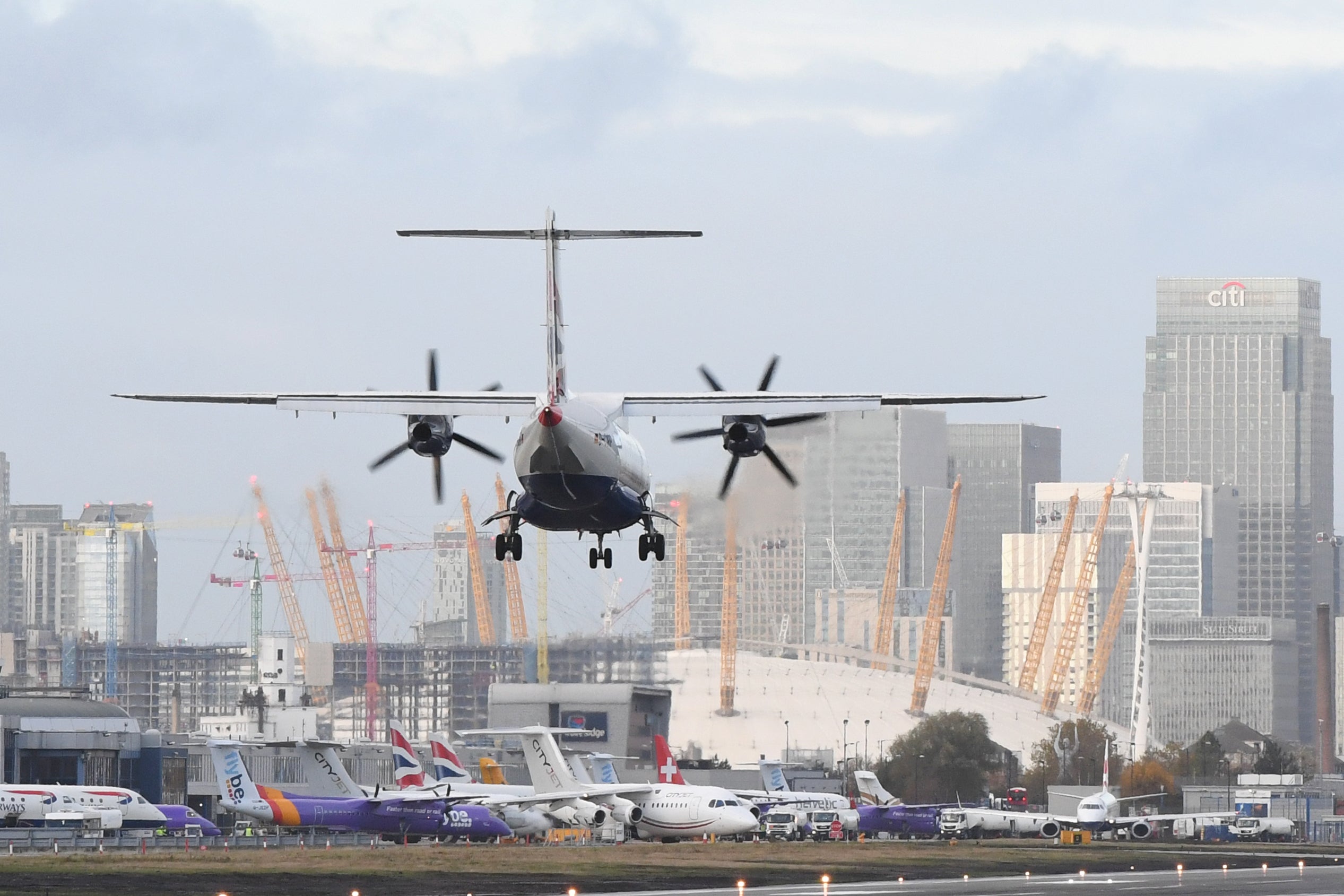Use electric or hydrogen planes for domestic flights, urges green group
The development of zero-emissions aircraft is vital for the country’s aviation sector to cut its carbon output, a new report claims.

Your support helps us to tell the story
From reproductive rights to climate change to Big Tech, The Independent is on the ground when the story is developing. Whether it's investigating the financials of Elon Musk's pro-Trump PAC or producing our latest documentary, 'The A Word', which shines a light on the American women fighting for reproductive rights, we know how important it is to parse out the facts from the messaging.
At such a critical moment in US history, we need reporters on the ground. Your donation allows us to keep sending journalists to speak to both sides of the story.
The Independent is trusted by Americans across the entire political spectrum. And unlike many other quality news outlets, we choose not to lock Americans out of our reporting and analysis with paywalls. We believe quality journalism should be available to everyone, paid for by those who can afford it.
Your support makes all the difference.Airlines should be required to use electric or hydrogen planes for some UK domestic flights within six years, a green group has claimed.
The development of zero-emissions aircraft (ZEA) is vital for the country’s aviation sector to cut its carbon output, according to a report by Transport & Environment
Carriers should be required to use ZEA for a “small percentage” of domestic flights from 2028, the document states.
The campaign group called for this percentage to increase over the next decade, culminating in a ban on planes burning traditional jet fuel on those routes from 2040.
Figures from the Civil Aviation Authority show there were 290,000 UK commercial domestic flights in 2019.
Some of the most popular routes connect Heathrow with Edinburgh, Glasgow and Belfast.
The report said it will not be feasible in the coming decades for most international flights to be operated by electric or hydrogen planes in the short term, but they should only be powered by 100% sustainable aviation fuel (SAF) from 2050.
Transport & Environment wants an immediate boost in investment for ZEA and SAF, funded by a tax on conventional jet fuel from 2025.
Clean water is the only waste product when hydrogen is used as a fuel.
EasyJet announced on Monday that it is working with Bedfordshire-based Cranfield Aerospace Solutions to support the development of its hydrogen fuel cell propulsion system for commercial aircraft.
US firm Wright Electric is hoping to introduce a 186-seat electric airliner with an 800-mile range into service by 2030.
SAF is produced with materials other than crude oil, and produces up to 80% less carbon emissions than traditional jet fuel.
Electric and hydrogen aircraft should be supported with taxpayer money
Matt Finch, UK policy manager at Transport & Environment, said: “A ban on conventional aircraft for domestic flights is necessary if the Government wants to fulfil its Jet Zero ambitions.
“A 2040 deadline for polluting jets will help transform the UK into a global leader on zero-emissions aircraft.
“Electric and hydrogen aircraft should be supported with taxpayer money in the early years, before airlines are required to use them by law.”
The Jet Zero Council was launched by Transport Secretary Grant Shapps in June 2020.
It features ministers and aviation leaders working to reduce the sector’s carbon emissions, resulting in a zero-emission transatlantic flight “within a generation”.